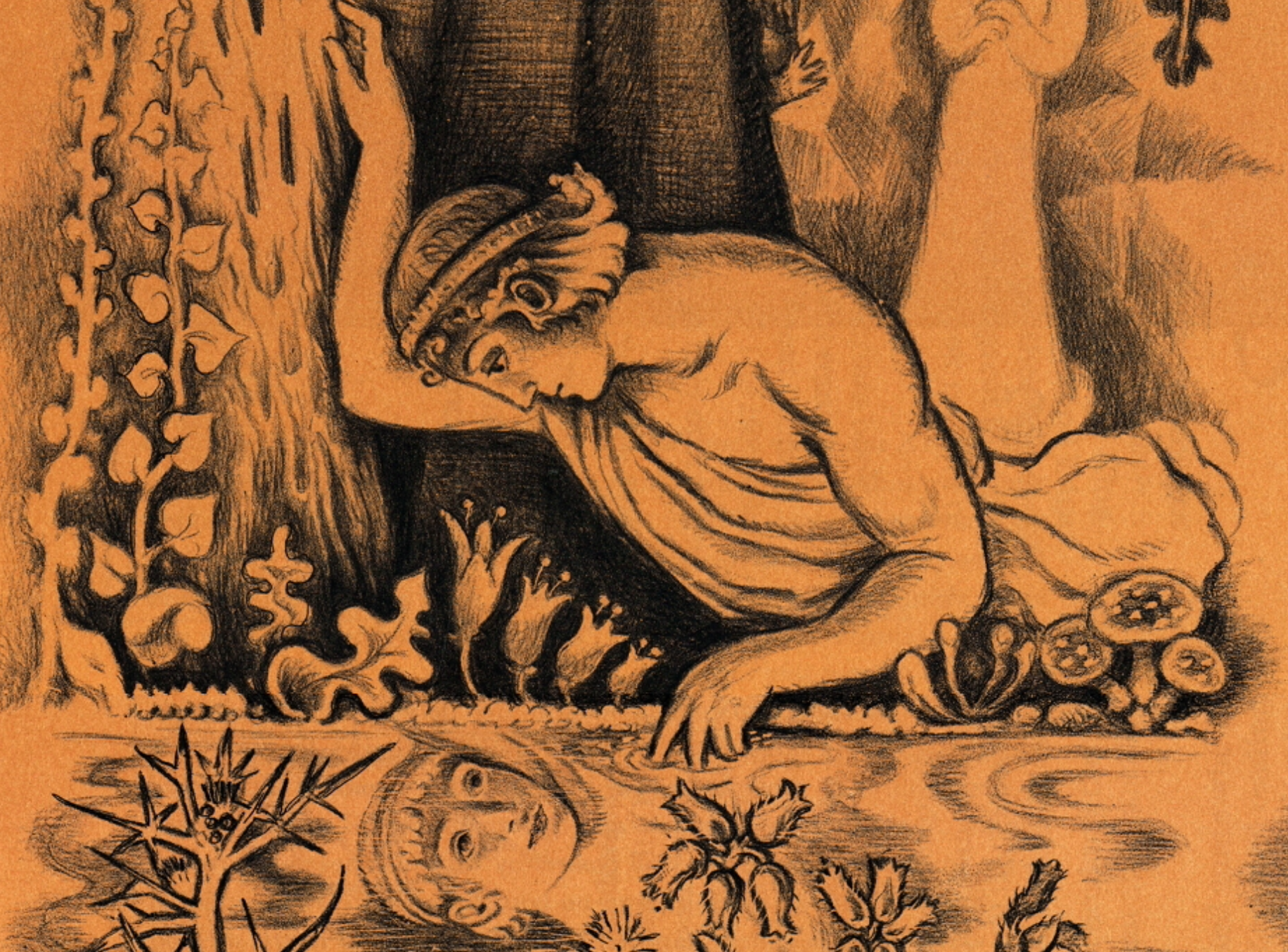“…for in the mirroring surface of the water he saw the handsomest face he had ever seen.” (D’Aulaire, 1962, p. 95)
The well-known Greek tragedy of Narcissus occupies a significant position in contemporary psychological literature, primarily because of its association with the pathological manifestation of self-importance linked to the name. The myth unfolds with the tragic story of Echo, a nymph who not only serves as a tangible character in the narrative but also functions as a “mythological cosmogony,” providing an explanation for the reverberation of sound wave phenomena. Having lost her own ability to form words, she became an echo of others. A literal echo of words, but also an symbolic meaning as attached to unrequited love, obedience to authority, and the loss of personal identity. The nymph follows a young handsome hunter called Narcissus who has fallen in love with his own reflection in a pool of water. Echo’s punishment was that she “could only repeat the words of others.” (p. 94) As Narcissus pronounces his love into his own image, Echo repeats the line. Further pulling Narcissus into his own self-delusion and causing him to stop eating and drinking “until he wasted away and died.” (ibid.) A flower sprouts in his place and the nymph remains here grieving until she too fades away.
The popular portrayal of Narcissus as the extreme personification of self-absorbed vanity can miss the other side of his human identity. The nymph Echo grants Narcissus the words that every human yearns to hear reciprocated, “I love you.” Even the most handsome of men is desperate for the security of love requited. While we are told that every nymph and every woman fell in love with him, why hasn’t Narcissus found any of these sufficient? Is the story about the entrancing effect of beauty or the dangers of human connection? The character is a hunter searching for his next meal, but also hunting for meaningful connection and purpose for his own existence. In his reflection, he avoids the dangers and difficulties of interpersonal relationships and protects himself from deeper emotional complexities. His reflection is handsome because it is safe, familiar, and allows him to project his own ideals onto it. Yet his reflection is not real, it is a dangerous illusion that cannot fill his emptiness—just as empty as his starving stomach. In the tragedy of Greek fate, Echo’s only role is to repeat the words Narcissus desperately needs, yet he cannot bear to hear them from her. The fate of the most loved and most handsome man is therefore to die without love.
Amazon Link
D’Aulaires’ Book of Greek Myths
https://amzn.to/41VkSgh (affiliate link)

Leave a ReplyCancel reply